Sue Barker was one of the biggest tennis stars of the ‘70s and ‘80s. Winning the French Open in 1976, she also saw herself in the final of the Virginia Slims Championships a year later, and was placed runner up alongside her doubles partner Ann Kiyomura at the 1979 Avon Championships.
But while she may have retired from the game five years later, Sue Barker's love of the sport transitioned into a successful broadcasting career – which saw her present across Australia's Channel 7, British Sky Broadcasting and the BBC for a whopping 37 years.
As she prepares to turn 70 next April, Sue Barker tells Yours Magazine how she’s planning to celebrate the milestone occasion, the secret to her happy marriage with husband Lance Tankard and the one thing she’d do differently in her glittering career…
You have a big birthday coming up, how are you feeling about it?
I'm not even going to think about it. I think age is just a number, but the thought of celebrating sort of fills me with horror! I love my fitness. I live in the Cotswolds and I’ve got two dogs, so we're walking miles every day. It doesn't matter what the age is, as long as I keep myself healthy, that's the most important thing.
How else do you keep fit?
My personal trainer comes around twice a week, and I go swimming twice a week as well. Nothing too crazy – I'm certainly not powerlifting in the gym, but I'm just keeping active and everything moving.
You’ve been married to Lance for almost 37 years. What would you say has kept that bond so strong?
We laugh a lot! We just have the same interests: we love travelling, living in the country. We've never really had a problem. We live near a place called Broadway, which is lovely. It's a really friendly place – so lots of friends and lots of fun.
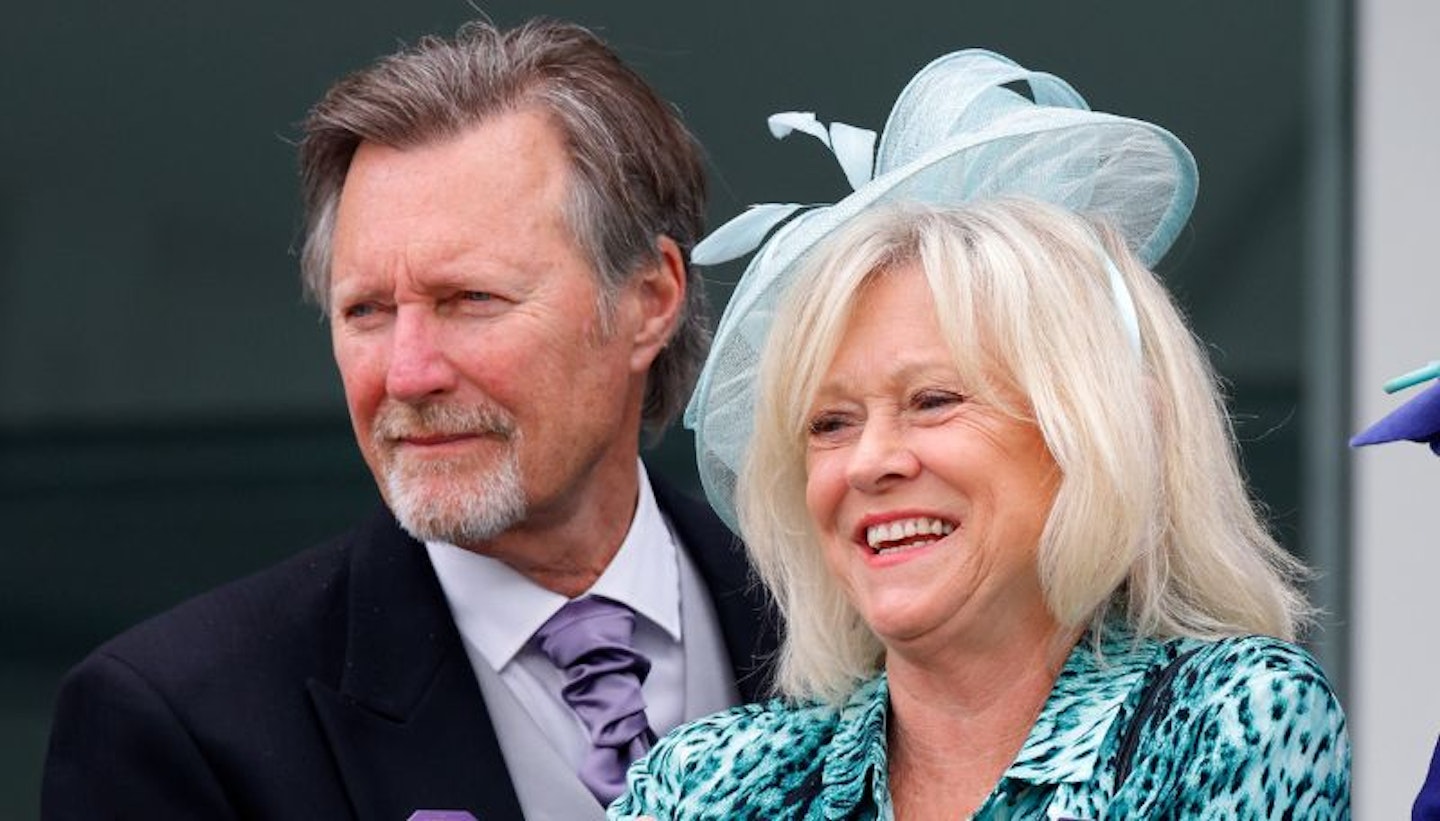
What are some of your proudest moments?
Tennis-wise, it would be winning the French Open. My coach always said, ‘Rankings are important, money is important, but winning a Grand Slam is legacy. That's something you will remember.’ And he was absolutely right, so winning that was really special to me. Broadcasting-wise, covering the opening ceremony of the London Olympics with Gary Lineker was just amazing. That ceremony was so magical. Interviewing Andy Murray on court after his Wimbledon win was another huge highlight. And the documentaries I've done with people that I really admire, like Andy, John McEnroe and Martina Navratilova.
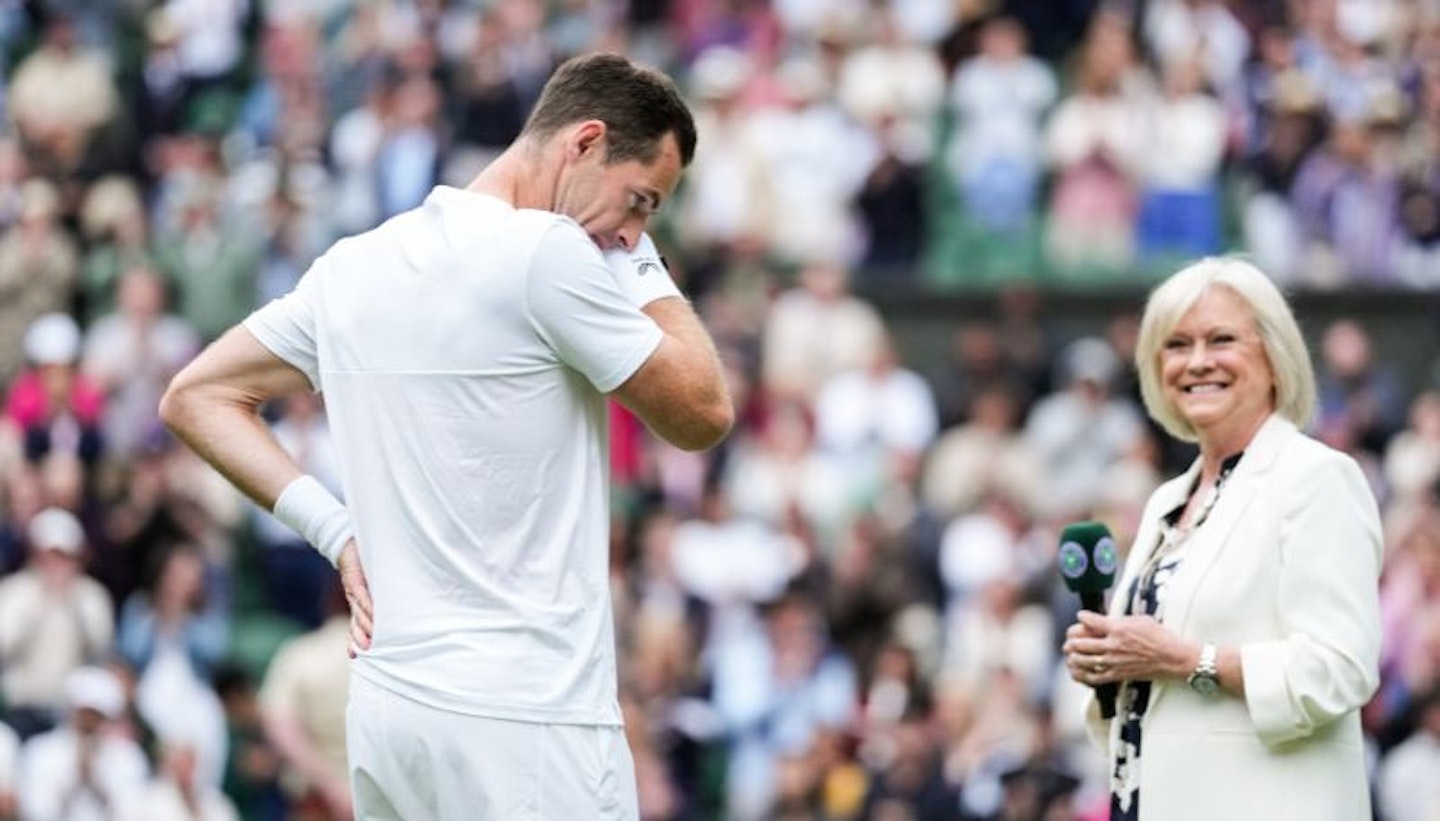
Is there a difficult moment that has taught you something?
If I could have one more go, I’d go back to Wimbledon in 1977. But if I'd won that match, and became super successful, maybe I wouldn't have needed to have another career – and so I wouldn't have had the fun that I had in broadcasting. But it really hurt, because I wanted to win Wimbledon – I still have nightmares thinking about it, because it was so important to me. It’s what I dreamed of, and to lose to someone I knew I should have beaten… I learned huge lessons from that, but it also made me slightly more fearful when I was playing matches afterwards. I hadn't really experienced that major loss before, so the negative thoughts would come into my head. It took me a little while before I realised that what I'd learned was actually good and it was just painful for a time - it made me stronger.
Is there anything you would've done differently?
I would have thanked my wonderful coach, Arthur Roberts – who gave up everything for me and never charged me for lessons. I thought I'd paid him a lot of money, and I hadn't. I wish we’d had a chance to sit down and to talk about what we did - he was so proud of me, and I never got that opportunity. He was older and died very shortly after I quit tennis, but he was my coach all the way through my career and it would have been lovely to reminisce with him. He made me the player I was, and if I hadn't had my tennis, I wouldn't have been given the opportunity at the BBC, so he gave me two careers.
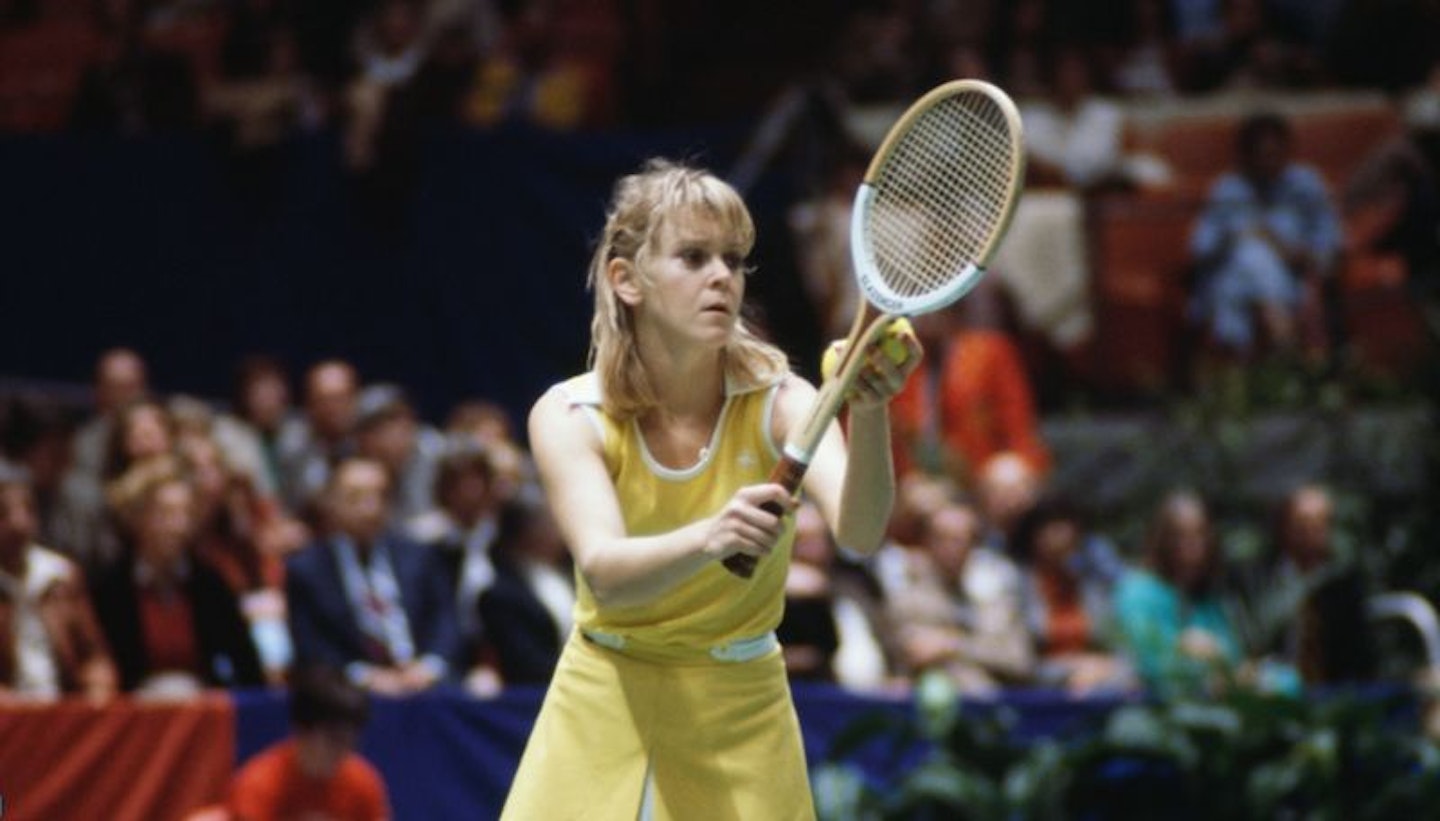
What does your household look like when it's Wimbledon season?
I'm lucky enough to be able to go to Wimbledon. Having worked for the BBC for 30 years, my role was always in the studio, whereas now I can go courtside, without people talking in my ear like they always used to do in television! It's fabulous to meet a lot of old friends there, and I can chat with people who I played with in my career. Once you're part of that tennis fraternity, there's a real camaraderie – it doesn't matter what decade you're from, everybody has the same love for the game.
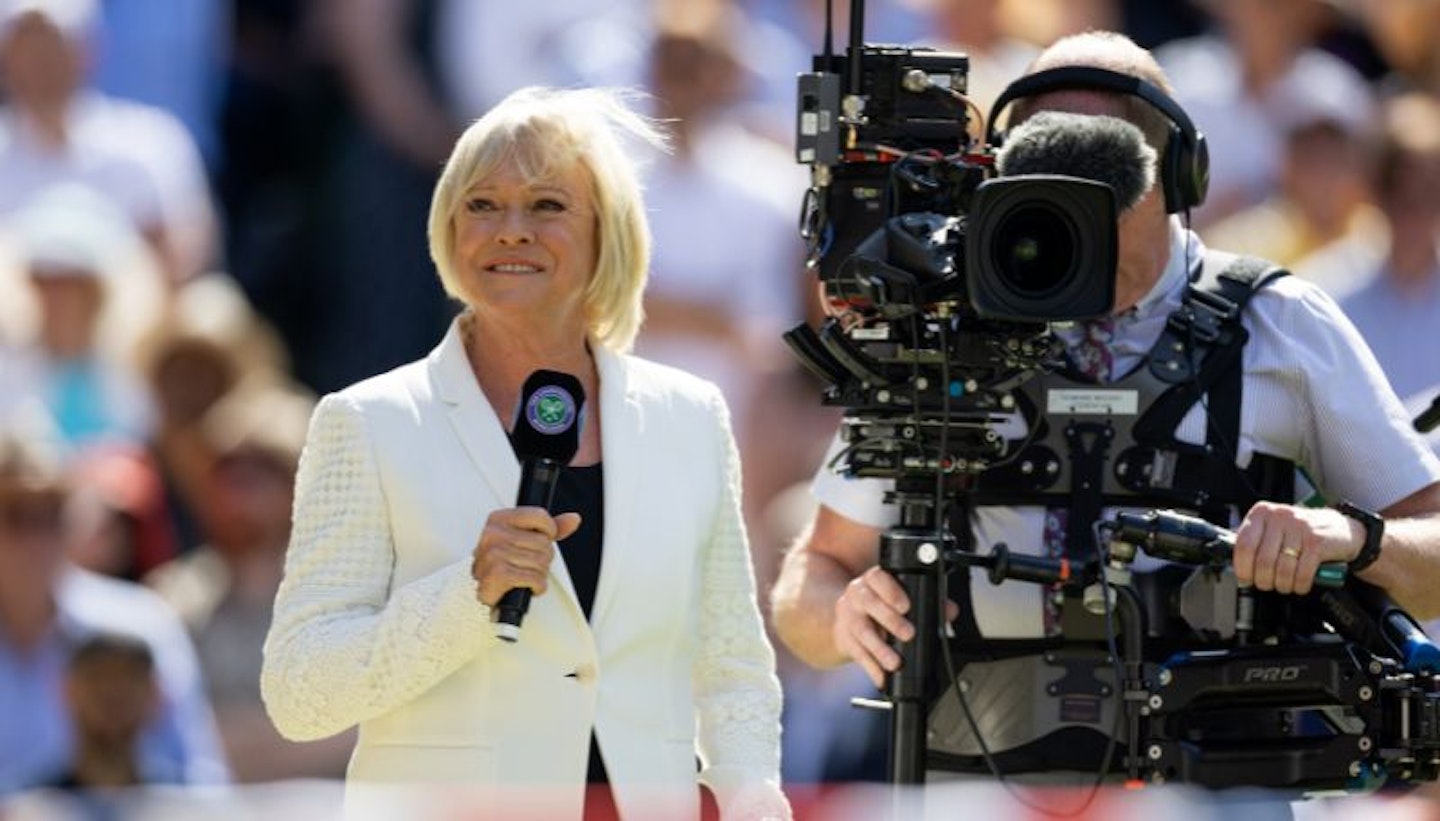
Why did you want to work with Sipsmith?
I love gin, and Sipsmith has been involved with Wimbledon for a while. When they asked me to come and launch a new drink for them, I said absolutely - it’s two really classy businesses coming together. It’s the perfect collaboration, and a real summer drink – I have enjoyed many of them over the Wimbledon championships.
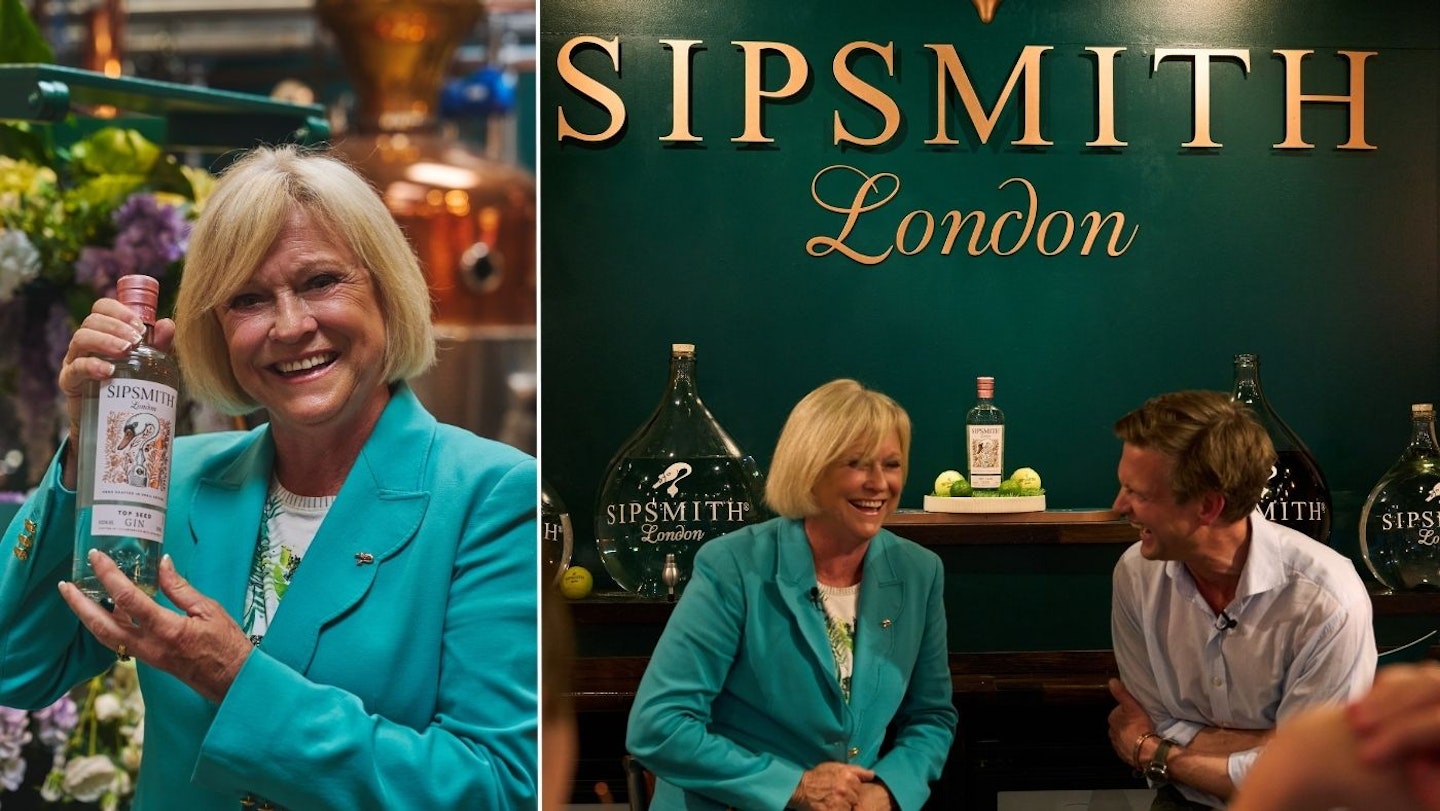
Crafted as a ‘spirit for champions,’ Top Seed Gin pays homage to the pursuit of tennis excellence and Sipsmith’s commitment to craftsmanship. This first-of-its-kind gin incorporates authentic grass seeds from Wimbledon’s meticulously maintained Centre Court as one of its botanicals, blended through the same process used in the brand’s renowned London Dry Gin. The gin has been distilled precisely to 41.03% ABV, as a nod to Centre Court turning 103 this year, and is exclusively available to members of Sipsmith’s Sipping Society.
The gin was officially unveiled at an exclusive event hosted by tennis legend and former Top Seed, Sue Barker CBE, celebrating the unique blend of sporting heritage and innovative distilling.
